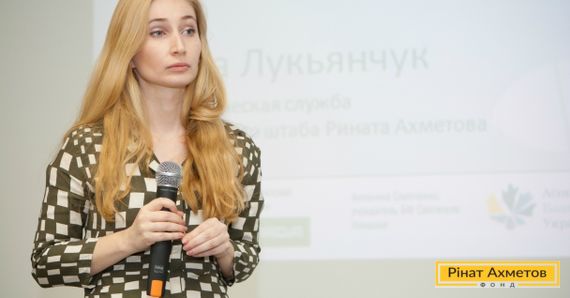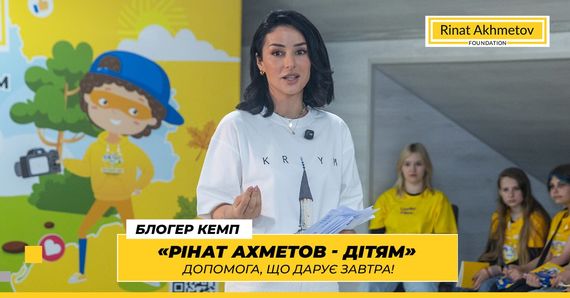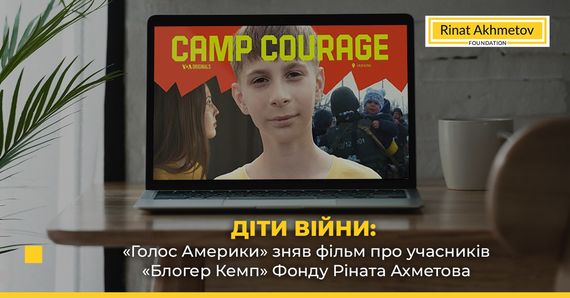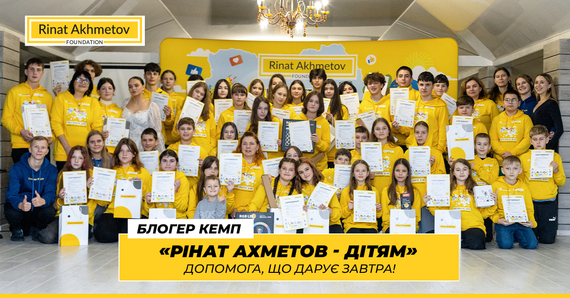Olena Lukianchuk: «The hardest part of our work was under shelling with wounded children»

According to UNICEF, more than 200,000 children from Donetsk and Luhansk regions need psychosocial support to overcome the post-traumatic syndrome. Experts say, it's a delay-action bomb. Today, this stress disorder is not fully researched: antisocial behaviour might manifest in six months or dozens of years alike. Boys and girls who survived traumatic events may become aggressive or reserved. It was the project of Rinat Akhmetov Humanitarian Center "Psychological Support" that helped thousands of Donbas children to return to happy life they once lived. A psychotherapist and an expert of the Humanitarian Center Olena Lukianchuk told in an interview how the children can be helped to cope with post-traumatic syndrome.
Tell us, please, what children face during an armed conflict? What is the aftermath they can experience?
Boys and girls under the age of 7 are in desperate need of bare safety. During the war, this need is completely destroyed: the world becomes aggressive, unpredictable, frightening and violent to a child. Children’s psyche is not mature enough and they lack experience, so it’s difficult for them to be sustainable to what is happening. Besides, if the child is left without the family support, or, what is the worst, lost parents and was physically injured himself - he is exposed to post-traumatic syndrome. This implies the decreased activity of the usually energetic child, disruption of his emotional connection with the parent and defects of physical development.
What kind of events can be the reason for the post-traumatic syndrome?
This disorder is associated with tragic situations that arise during the war or in conditions that are dangerous to human life and health.
Which is the most effective way of rehabilitation, in your opinion?
A loving family can make for the rapid recovery. However, the armed conflict and unexpected change of residence often become obstacles. In such situations, any positive communication with the child may change his condition for the better. There are a lot of art-therapeutic, convective and dynamic approaches that are recommended for children in extreme stress conditions. The ideal solution to the problem is a complex of the relatives’ support and the help of specialists.
How did your cooperation with the Humanitarian Center within the "Psychological Support" project begin?
When in 2014 Rinat Akhmetov Humanitarian Center was largely engaged in resettlement and evacuation of Donbas displaced civilians, the idea of psychological support arose. The Center staff addressed me with a proposal, and within two weeks of joint efforts we managed to gather a team of qualified psychologists from Odesa, Kharkiv, Donetsk and Zaporizhzhia regions. At that time it was the only way to help people to cope with stress. I am a displaced person myself, so I understood how deeply the help is needed. This work has become a contribution not only to the activities of the Humanitarian Center, but also to a large-scale peacekeeping mission.
What were the most difficult moments?
Since many settlements were under fire, the most difficult was to meet physically injured adults and children. Our psychological service also consulted people during the shelling. It's all very painful and scary. You are seized with paralyzing fear. However, you understand that someone needs your help for sure in these moments.
What your patient’s history you remember most?
It is difficult to single out someone. I remember all the people with whom the Psychological Support communicated. To overcome stress, with each of the victims we went through the emotions and pain they had experienced.
How should parents behave in situations when, as a result of the war, the child is traumatized not only psychologically, but also physically?
First of all, you need to interrelate with the child and explain to him what has happened. Children perceive their injuries from the adult’s perspective. If parents overreact to the current situation, their son or daughter perceive this similarly. The adults’ task is to remain reasonable and not to fall into hysterics.
What are the main results of the recovery course?
For me, the key achievement of the work for the Humanitarian Center is helping almost 50,000 children on both sides of the demarcation line. Boys and girls, who received proper psychological support in time, were able to recover and return to common life. Another important result was the development of the "War-effected children" program for psychologists, approved by the Ministry of Education.
Reference. In 2014, Rinat Akhmetov Humanitarian Center launched the "Psychological Support" project. The main goal of the project is to help children and families who got the "war-time trauma" as a result of the hostilities in Donbas. On the Center’s initiative in 2014-2015 250 psychologists from different parts of Ukraine were trained on "War-time trauma" course. In 2016, the active phase of the project was completed. Now the Center continues providing methodological support to specialists for their advance training. During the three years of the project, about 56,000 people received psychological support from the Humanitarian Center, 49,922 of whom were children.



